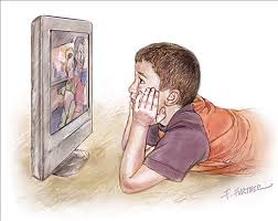 Setting limits on screen time is a hot topic these days. The rapid advancement of technology has caused it to become an integral part of most of our lives to varying degrees (especially young people). Doctors have acknowledged that most kids are exposed to and/or consume media for a significant part of each day (I have read that it is an average of over 7.5 hours per day) and suggest that parents “ban” electronics during mealtimes and bedtime. According to some studies, inordinate media use is directly associated with obesity, lack of sleep and under-performance in school. So how can parents reduce screen time while effectively using screen time to help their children learn? Here are six ways that may help one accomplish that goal. 1. Memory Improvement - Research has shown that specific types of video games (e.g. Minecraft) can help children who have weak/deficient working memory and executive functioning skills. The video games that require players to plan and follow through with those plans results in their decision making based upon the success or failure of their plan. 2. Motivation - Some people may feel that using screen time as a “reward”(of sorts) is a bad thing. However, it can be effectively used to motivate children that have difficulty completing school work, household chores or anything that requiring follow through. This is not for everyone. It can certainly work well if a discussion takes place and an agreement is made specifically regarding what is to be accomplished before playing with an electronic device. Also include when devices should be turned off and consequences for not abiding by those rules. Parental follow through will increase the chances of success. 3. Technology can promote friendships - If you child feels like an outsider with his classmates and peers, acquiring knowledge of the latest video games, YouTubers, movies, tv shows can be helpful in fostering relationships. with respect to youth (and adults), common interests can make one more confident when they are in social settings. 4. Television shows can model behavior - Many television shows don’t provide the best examples for behavior, but there are some that do (e.g. The Brady Bunch, Cosby Show, Gortimer Gibbon’s Life On Normal Street). When watching shows with your child, pausing the show at times can help them predict reactions of characters, think about what they would do if in a similar situation, and understand sarcastic verbal exchanges and word play (e.g. puns, Spoonerisms). Along with teaching life lessons, parents can also use shows to reinforce values they are trying to instill. It can also be a good bonding experience. 5. Establish technology free areas in your home - Despite technology being mobile, it doesn’t mean it should be used everywhere at anytime. Examples of implementing this plan are no television during meals and no mobile devices at the dinner table (helps develop conversation skills), collecting mobile devices at night before bedtime (will help kids get more sleep), no televisions/computers in bedrooms, and no fidgeting with electronics when involved in a conversation with someone (give them the courtesy of your full attention). 6. Conduct research online - Commonsensemedia.org is a great website to find reviews of movies, tv shows, apps, games, videos, websites and books. Netflix has a section of their site with appropriate content for kids that are 12 years of age and under. You can also preview any shows that you enjoy. Often times, specific episodes or parts of episodes may be good used to teach life lessons (my wife does this with our 12 year old daughter). Leave a comment regarding what screen time learning ideas work well for your family!
0 Comments
Leave a Reply. |
AuthorRandy Sally Archives
June 2023
Categories
All
|

 RSS Feed
RSS Feed
